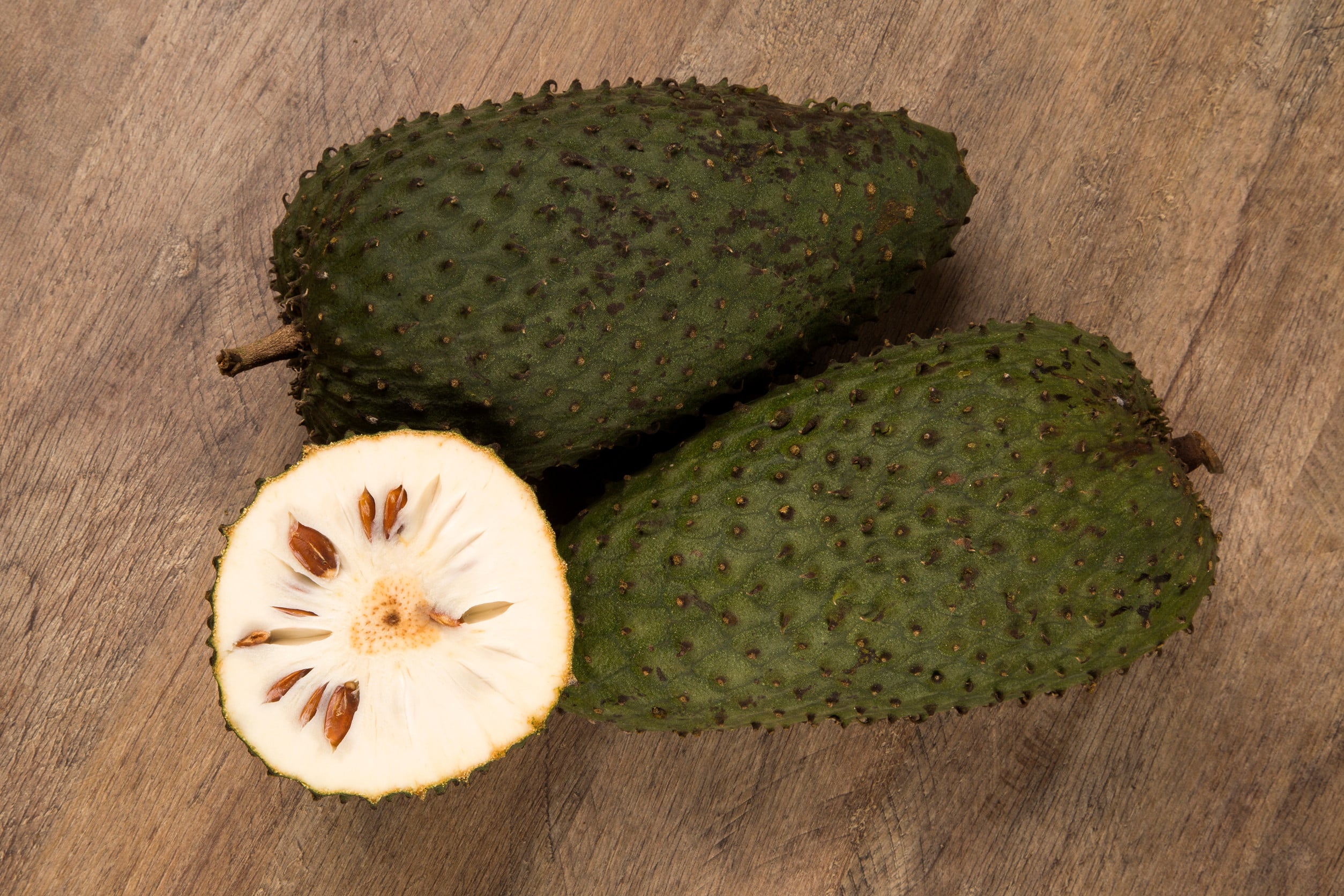Image Credit: paulovilela/123rf.com
Soursop, a spiky green fruit also known as graviola, is gaining attention in the wellness community for its potential health benefits, particularly its anticancer properties. Native to Central and South America, soursop has a long history of use in traditional medicine, where it has been employed to treat various ailments ranging from infections to diabetes.
Recent scientific interest has focused on the bioactive compounds found in soursop, particularly acetogenins, which have demonstrated cytotoxic effects on cancer cells. A review published in the International Journal of Molecular Sciences highlighted these compounds’ potential to inhibit cancer growth. However, researchers also cautioned that high doses of acetogenins, such as annonacin, could lead to neurodegenerative diseases including Parkinson’s, emphasizing the need for further investigation into their safety.
In addition to its potential anticancer effects, soursop offers a robust nutritional profile. A single cup of soursop flesh contains 148 calories, 7.42 grams of fiber, and is rich in vitamin C, potassium, and magnesium. Its antioxidants may help combat inflammation and oxidative stress, making it a healthy addition to the diet. The fruit is often described as having a flavor reminiscent of strawberry and banana, and its low glycemic index can be beneficial for those monitoring blood sugar levels.
Despite the growing enthusiasm for soursop, experts agree that more research and clinical trials are necessary to substantiate its health claims. While soursop may be considered a complementary treatment for cancer, it is not a substitute for conventional medical therapies.
As interest in natural remedies continues to rise, the popularity of soursop reflects a broader trend toward exploring traditional healing practices. However, the potential risks associated with its bioactive compounds underline the importance of moderation. Consuming whole fruit in reasonable amounts is recommended to enjoy its benefits while minimizing any adverse effects.
In summary, soursop is emerging as a tropical fruit with promising health benefits, particularly in the realm of cancer research. As scientists continue to explore its properties, it remains a flavorful option for those looking to enhance their diet with nutritious foods.
Check out the original article here: Source link



